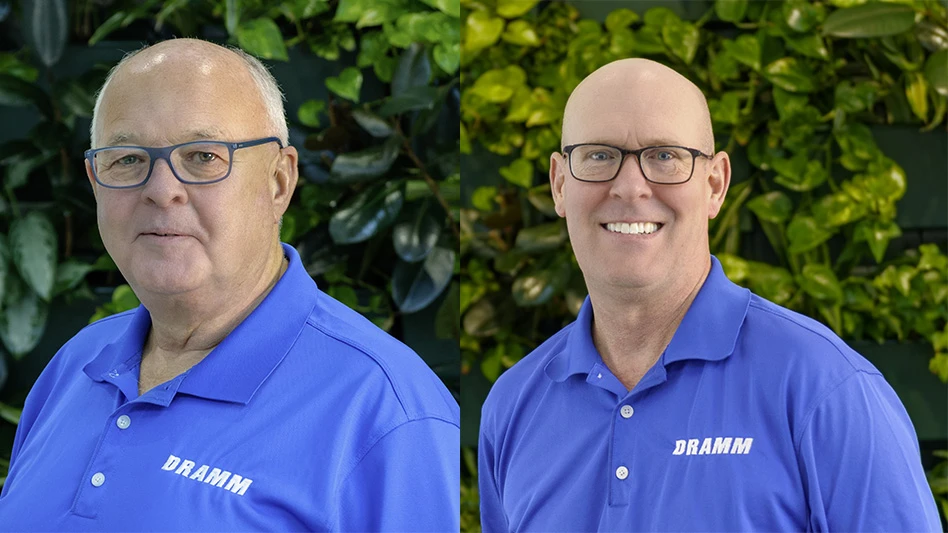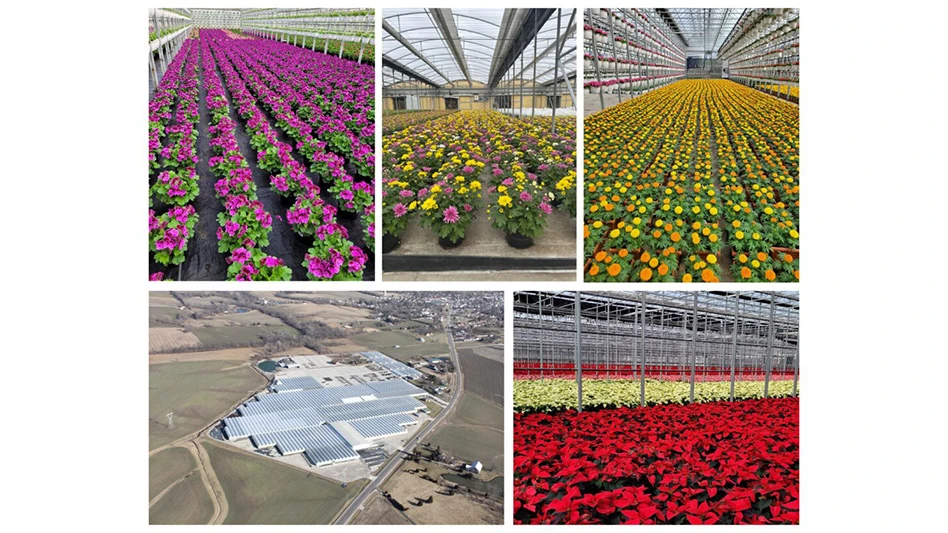
Plants have always been in Joseph Tychonievich’s blood. The independent breeder and author has a distinct memory of getting seeds for his fifth birthday, inspiring a passion that flourished throughout his formative years even as neither of his parents were interested in gardening.
“There was something exciting about it,” says Tychonievich, 32. “Putting a seed in the ground and turning it into a plant was fascinating and cool to me.”
Since then, Tychonievich has become one of the horticulture industry’s most highly visible young dynamos. The Ypsilanti, Mich., resident’s resume includes a managerial stint at famed rare plants nursery Arrowhead Alpines, where Tychonievich worked daily with hundreds of plant species. In 2013, Organic Gardening Magazine named him among the top young horticulturists helping shape how America gardens.
Tychonievich doesn’t know if he’s the voice of a future gardening generation, but he’s enjoying his time in the industry regardless. Twice-monthly speaking engagements on various aspects of horticulture keep Tychonievich busy even as he works on his second book, a how-to on rock gardening due to publish in November. His first book, Plant Breeding for the Home Gardener, was released in 2013 by Timber Press.
“The first book was more technical; this one is going to have more photos,” says Tychonievich. “I feel like rock gardening is an underappreciated style and I want to introduce more people to it.”
A passion takes root
While Tychonievich’s enjoyment for soil and seeds started in childhood, it was connecting with other gardeners online that pointed him to a career in the business. Gardening forums provided not just an endless well of knowledge, but a subset of people who treated plants as something more than a hobby.
“By my early teens, I saw this was something I could turn into a career,” says Tychonievich. “I could make money doing something I loved.”
The young plant enthusiast earned a bachelor’s degree in horticulture from Ohio State University in 2006. In 2004, Tychonievich spent a summer working at Shibamichi Honten Nursery in Japan, a learning experience in and of itself, he notes.

“The biggest thing I discovered is how similar plant people are, no matter their native language,” Tychonievich says. “It was fun to connect with other plant nerds and realize there wasn’t much difference between us.”
Tychonievich penned his first book after a gardening blog he’d been writing got noticed by his soon-to-be publisher.
“They asked if I wanted to write a book; I was pretty stunned,” says Tychonievich. “We talked and came up with the concept.”
The newly-minted author started the rock gardening book a year after Home Gardener was published. Tychonievich is enjoying the creative process a bit more this time around, as many of the photos set to appear in the book are his own.
“It comes down to loving plants on a basic level,” he says.
Making a connection
Along with speaking and book writing, Tychonievich contributes articles to The Garden Professors, a blog run by a quartet of horticulture professors to promote science-based gardening information.
As horticulture incorporates both science and aesthetics, it’s important to give readers sound advice backed up by solid evidence, maintains Tychonievich.
“There’s a big communication problem with people who have never gardened before,” he says. “We have to make it clear and easy for them.”
_fmt.png)
Engendering that connection is what the industry must focus on moving forward, says Tychonievich. Independent garden centers have to be reshape their business models in concert with consumer trends, particularly as more gardening newbies cultivate their plots with high-quality fruits and vegetables.
“Be creative and look for new solutions,” he says. “People are not just looking for a pot of petunias anymore. They want edibles that are beautiful and delicious.”
Living space, or lack thereof, is another consideration when determining how to attract future consumers. For example, a Millennial-aged professional may only have a balcony or patio with which to grow their wares.
“Small vegetables in containers can be great for people who think they can’t garden without a yard,” he says. “That would help (garden centers) open up a bigger customer base.”
Tychonievich, himself an apartment-dweller, produces everything from ornamentals to cucumbers on a 5-acre plot provided by a friend. He’s also breeding hardy Gladiolus, raised to survive a Michigan winter, and has partnered with Plants Nouveau on growing unique flowers that can be licensed to other nurseries.
Once Tychonievich has enough varieties to fill a catalogue, he plans to open his own nursery.
“Plant breeding is my real passion, so I’d like to have my own nursery to get new varieties into the market,” he says.
If Tychonievich is to be a next-gen horticulture leader, he wants to reach out to others with the same generosity he was shown early on.
“There’s lots of interaction and collaboration that wasn’t there in previous generations,” he says. “Now we can talk to each other about ways to innovate.”

Explore the March 2016 Issue
Check out more from this issue and find your next story to read.
Latest from Nursery Management
- Get to know Pat Reilly with NewGen Boxwood and the American Boxwood Society
- Terra Nova Nurseries introduces rust-free and disease-resistant heucherella
- John T. Nickel, founder of Greenleaf Nursery Co., passes away at 89
- Three tours offered at 2025 Farwest Show
- Garden Media Group announces sixth annual Women in Horticulture Week
- Star Roses and Plants announces National Knock Out Rose Day
- The Growth Industry Episode 4: How federal budget cuts are affecting horticulture nonprofits
- Pennsylvania Horticultural Society shares top gardening trends from 2025 Philadelphia Flower Show






